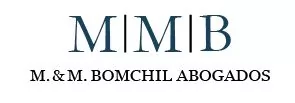Information and publicity regime applicable to benefits for physicians in the City of Buenos Aires
On January 13th, 2017, the Official Gazette of Buenos Aires City published Law No. 5709, which aims to provide patients a tool that allows them to have as much information as possible about conflicts of interest which could affect therapeutic decisions taken by health professionals.
The law establishes that manufacturers, importers and distributors of medical, biological and pharmaceutical products that grant and/or deliver goods, services, benefits or prizes of pecuniary value to doctors in the City of Buenos Aires, shall report such situation to the local health authority for the purpose of giving it proper publicity.
The following shall be considered as goods or services susceptible to pecuniary valuation:
(a) Cash payments.
(b) Professional fees payments.
(c) Payments intended to cover any professional training
activity.
(d) Payments intended to cover travel expenses.
(e) Delivery of tickets, gifts, lodging, representation expenses,
meals or any other good of pecuniary value.
The information to be filed with the enforcement authority shall contain at least the following information:
(a) Identification of the contributing company, indicating the
products manufactured, imported or distributed.
(b) Full name of the receiving physician or beneficiary.
(c) Professional specialty of the physician.
(d) Nature of the incentive and, if applicable, the amount of the
payments and/or the transfers, contributions, or gifts.
(e) The dates on which the payment, transfer, contribution or gift
was made.
The information provided must be compiled and systematized in the form of a database and published by the enforcement authority for the knowledge and free consultation of citizens, both in digital and graphic format.
The Ministry of Health of the City of Buenos Aires, as the local health authority, shall be the enforcement authority with powers to request additional information and/or add requirements to those established by the law. It must also set the corresponding deadlines and penalties.
The content of this article is intended to provide a general guide to the subject matter. Specialist advice should be sought about your specific circumstances.


